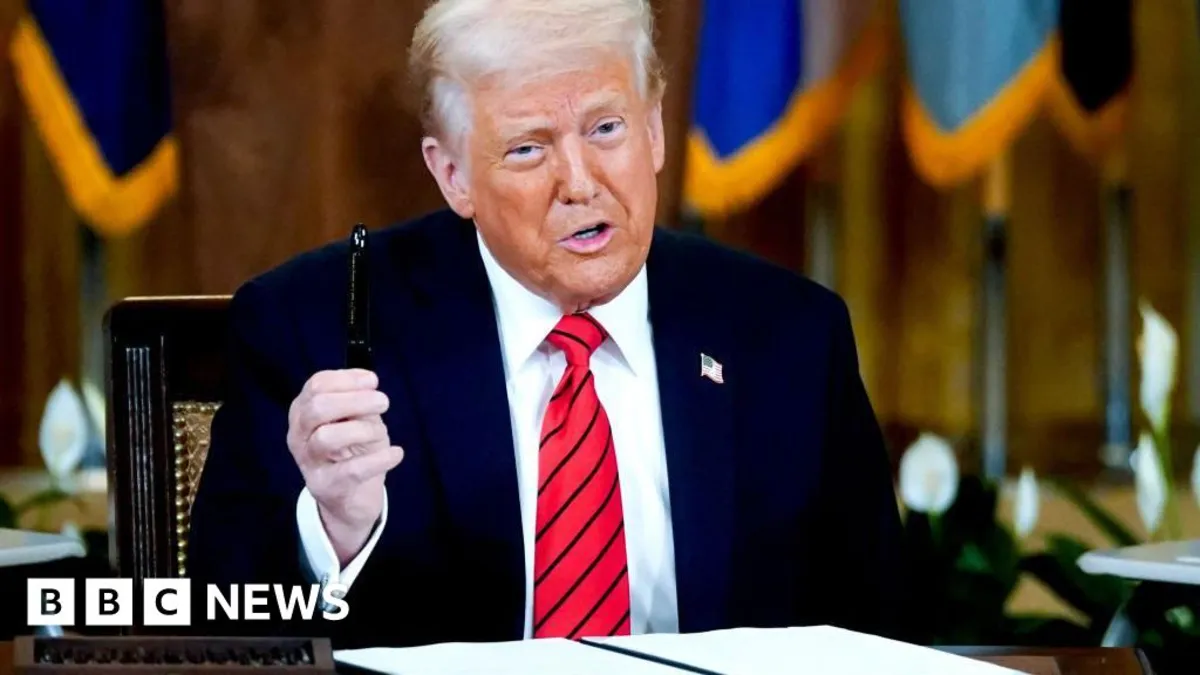
In a significant turn of events, President Donald Trump has rescinded an executive order that targeted the esteemed international law firm, Paul, Weiss, Rifkind, Wharton & Garrison LLP. This decision came after the firm agreed to abandon its Diversity, Equity, and Inclusion (DEI) policies and pledged to contribute $40 million (£31 million) worth of pro bono legal services to support various White House initiatives.
On March 14, Trump issued an executive order that resulted in the termination of federal contracts with Paul Weiss and the suspension of security clearances for its attorneys. The order claimed that the firm was undermining the integrity of the US judicial system. This action was part of a broader strategy by Trump, who has also issued similar executive orders against other law firms, including Perkins Coie and Covington & Burling.
The order was rescinded following a meeting between Trump and Brad Karp, the chairman of Paul Weiss. In a post on Truth Social, Trump announced that the firm had agreed to a series of concessions, which included the commitment to provide $40 million in pro bono legal services throughout his presidency. Additionally, Paul Weiss committed to a merit-based hiring and promotion system, explicitly stating that it will not implement or pursue any DEI initiatives.
Prior to the rescindment, Trump's order had serious implications for Paul Weiss, a law firm that generated over $2 billion in revenue in 2023 and employed more than 1,000 attorneys, according to American Lawyer Magazine. The revocation of security clearances could have created significant obstacles for the firm in its work with various corporate, security, and Wall Street clients. The original executive order accused Paul Weiss of contributing to the erosion of foundational American values and the judicial process.
Trump's initial order pointed to specific instances that he claimed demonstrated Paul Weiss's detrimental role in the judicial system. One notable example involved a pro bono lawsuit filed by a partner of the firm against individuals involved in the January 6, 2021, Capitol riots. Trump has since released and pardoned many of those referred to as "J6ers." The order also targeted Mark Pomerantz, a former partner at Paul Weiss who had collaborated with the Manhattan District Attorney on the hush-money payments case involving adult film actress Stormy Daniels. Trump was convicted of a felony in this case last year.
Following the withdrawal of the executive order, Brad Karp expressed gratitude in a statement, saying, “We are gratified that the President has agreed to withdraw the Executive Order concerning Paul Weiss. We look forward to an engaged and constructive relationship with the President and his Administration.”
In a related context, law firm Perkins Coie has initiated legal action against the government regarding similar executive orders issued by Trump. As the legal landscape continues to evolve, the implications of these actions on diversity initiatives and the broader legal community will be closely watched.